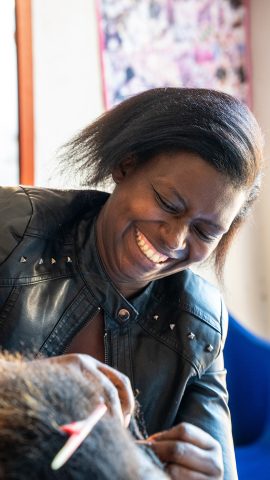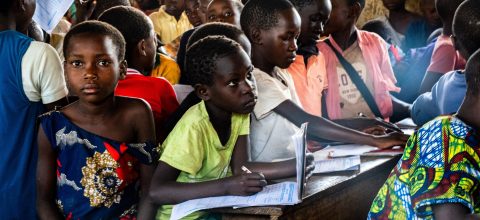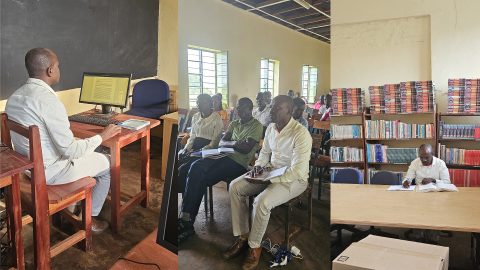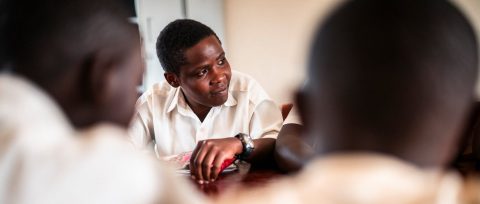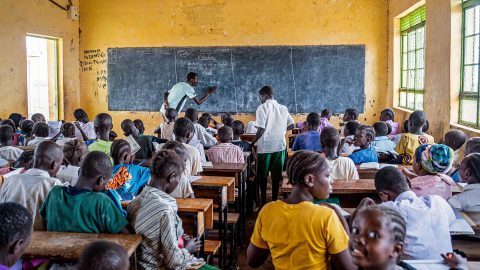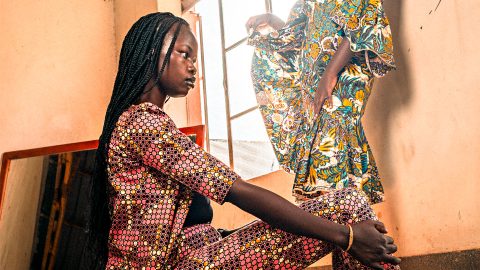Education goes on the road to reach refugees in Bidibidi, Uganda
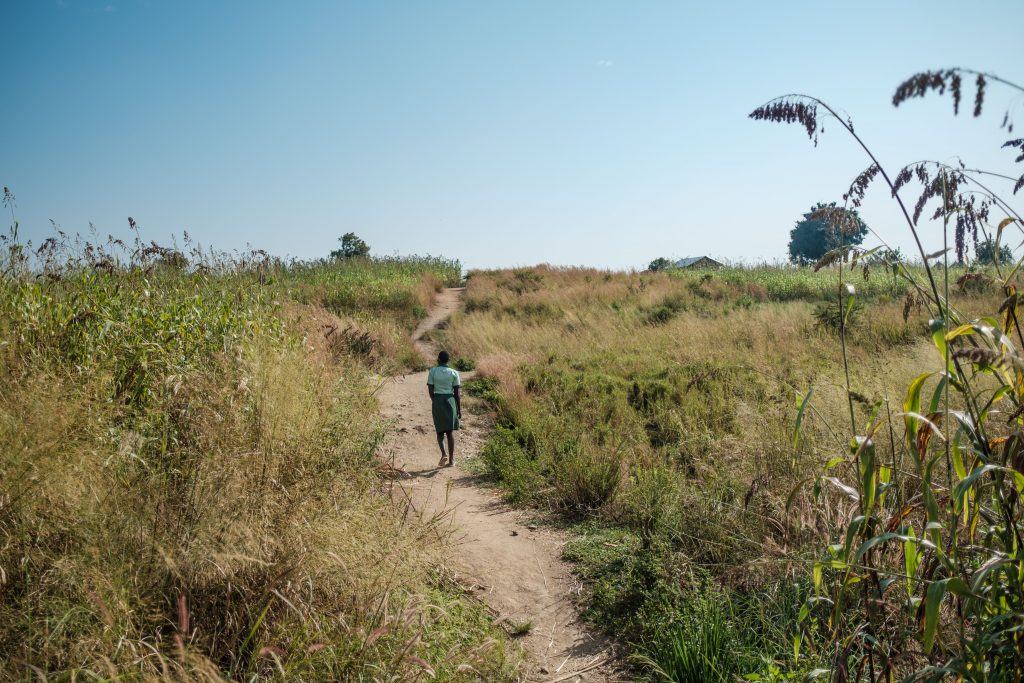
Educating children who are not in school is an enduring challenge in refugee settlements. Children leave school if they perform poorly or when they are not treated well in school. Sometimes, parents do not give them tuition fees or encourage them to go to school because they don’t think education is important, they would rather have them stay home to do chores or find a job that supports the family financially. Others have experienced emotional hardships like the loss of a family member to conflict or illness, physical or sexual abuse or trauma from war. Girls who marry at a young age or become pregnant are particularly at risk from dropping out of school.
WHEN STUDENTS leave school and become adults, they find it harder to return to the classroom. Bidibidi refugee settlement in Uganda is the largest refugee settlement in the country, and second largest in the world, hosting 239,096 refugees – over fifty percent are children aged between 5-17 (UNHCR). A large number of these children do not attend school, some have never enrolled. At the end of 2020, approximately fifteen percent of school aged children were not attending. Almost a year later, in October 2021, FCA conducted a rapid assessment in one area of Bidibidi and found that almost 30 percent of households had out of school children (OOSC).
64% of the children who are out of school are girls and education is one of the best ways to prevent problems like early marriage and pregnancy, according to the UN Agency for Children (UNICEF). Once they get an education, these children earn higher incomes, participate in the decisions that most affect them, and build better futures for themselves and their families.
To help both male and female children who are not in school, Finn Church Aid (FCA) has launched a pilot project that will bring learning to them through a mobile education unit dubbed the ‘FCA School Bus’. The project is funded by the LEGO Foundation and will be implemented in Bidibidi.
The FCA School Bus is part of the ‘Play to Learn’ project and builds on FCA’s existing education expertise and other programmes in Bidibidi where the organisation is the main education partner for United Nations Refugee Agency. FCA’s programmes cover every stage from early childhood through to secondary and vocational education, with a strong Accelerated Education Programme and Special Needs Education.
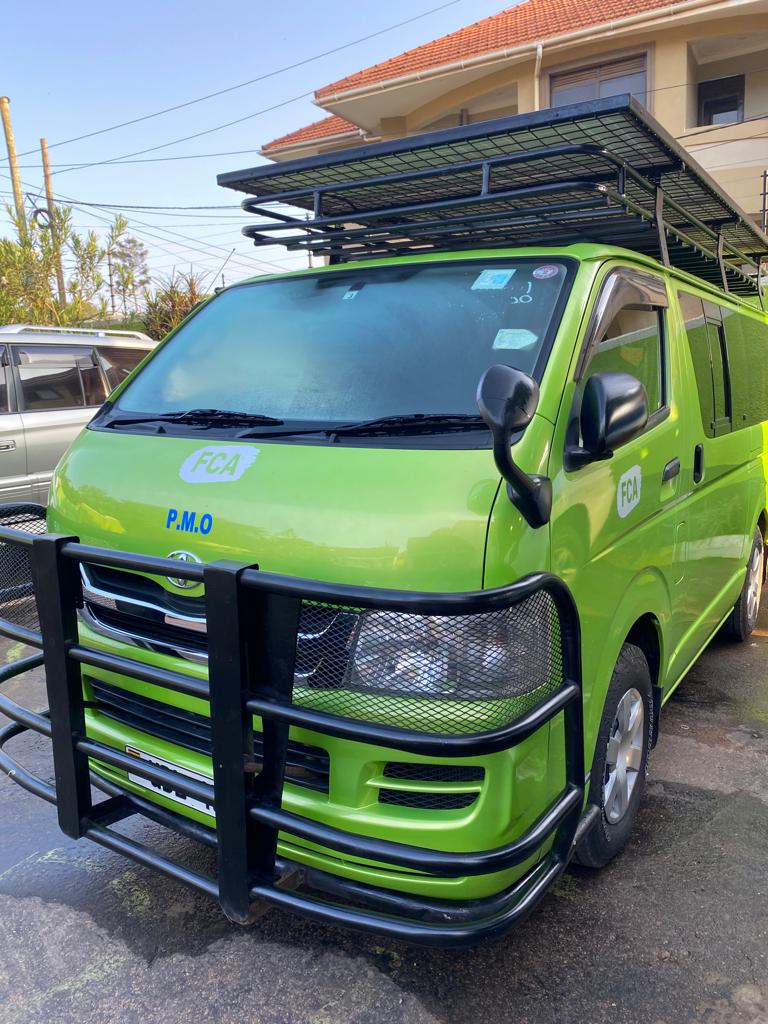
“Play to Learn addresses the main barriers to education such as income issues – through focused information sessions about school fees,” says William Kerango the LEGO Project Manager at FCA.
Running over eighteen months, Play to Learn aims to provide inclusive, formal and non-formal education to out of school children. It will provide quality teaching and learning through functional and play-based pedagogy in child-friendly environments.
The FCA School Bus will travel around Bidibidi with a team of education experts and psychosocial assistants providing mobile learning opportunities for children to ensure that we reach out of school children in their communities. The intention is to increase the interest in learning so that children go back to school.
The bus should reach around 810 children from nine villages and will be equipped with learning and play materials, including locally made toys, tablets and tents and mats for mobile learning, to deliver content so that out of school children can learn.
“We will work with education experts to train teachers in functional play-based learning. Learning through play that supports the development of early literacy and numeracy skills, while also developing children socially, emotionally and physically,” says Kerango.
About the LEGO Foundation
The LEGO Foundation aims to inspire and develop the builders of tomorrow – a mission that it shares with the LEGO Group. The LEGO Foundation is dedicated to building a future where learning through play empowers children to become creative, engaged, lifelong learners. Its work is about redefining play and reimagining learning. In collaboration with thought leaders, influencers, educators and parents, the LEGO Foundation aims to equip, inspire and activate champions for play.
Text: Linda Kabuzire
